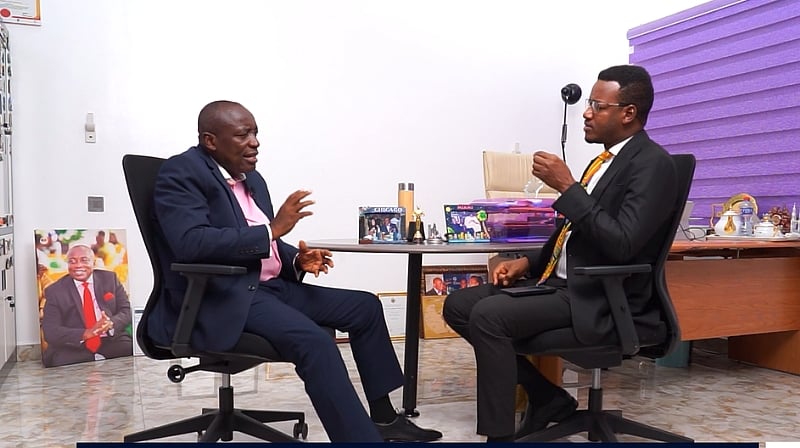Ing. Kwabena Agyepong, a former flagbearer aspirant of the New Patriotic Party (NPP), has advocated for an expedited selection of the party’s next flagbearer, proposing a December 2025 deadline. He argues that an early resolution of the leadership question is crucial for the party’s recovery and future electoral success. This, he believes, will afford the chosen candidate ample time to consolidate support, unify the party, and strategize effectively for the 2028 general elections. Agyepong’s call comes in the wake of the 2024 elections, a period of introspection and strategic planning for the NPP, as they analyze their performance and chart a course for the future. His perspective reflects a growing concern within the party about the need for proactive measures to regain momentum and public confidence.
Agyepong’s primary argument centers on the benefits of minimizing internal friction and maximizing preparation time. An early flagbearer election, he posits, would quell potential internal power struggles and allow the party to coalesce around the chosen candidate. This unity, he contends, is essential for rebuilding the party’s grassroots base, strengthening its internal structures, and projecting a cohesive front to the electorate. A prolonged leadership vacuum, on the other hand, could exacerbate existing divisions, distract from critical rebuilding efforts, and ultimately weaken the party’s chances in the next general election. He emphasizes that the earlier the flagbearer is chosen, the more time the party will have to heal internal rifts and focus on the collective goal of regaining power.
The heart of Agyepong’s proposal lies in the strategic advantage of having a designated leader in place well ahead of the 2028 elections. This, in his view, will provide the necessary time for the chosen candidate to connect with the electorate, articulate a compelling vision for the future, and build a strong campaign apparatus. A longer lead-up to the election will also allow the flagbearer to address internal party matters, strengthen relationships with key stakeholders, and foster a sense of unity and purpose within the ranks. The extended timeframe, Agyepong argues, is crucial for building momentum and generating the kind of grassroots enthusiasm necessary for a successful campaign.
Furthermore, Agyepong envisions the early election of a flagbearer as a catalyst for revitalizing and expanding the party’s support base. He highlights the importance of strengthening the “constituency caucuses,” bolstering the existing party structures, and fostering broader engagement with the electorate. With a clear leader in place, he believes, the party can channel its energies towards these crucial organizational tasks, strengthening its presence at the grassroots level, and expanding its reach to new demographics. This focused approach, Agyepong contends, will lay the groundwork for a more robust and effective campaign in 2028.
Agyepong’s call for an expedited flagbearer election also reflects a broader concern about the party’s current trajectory. Following the 2024 elections, the NPP finds itself at a critical juncture, needing to assess its strengths and weaknesses, and to develop a clear roadmap for the future. Agyepong’s proposal represents a proactive step towards addressing these challenges, emphasizing the need for decisive action and a forward-looking approach. By urging the party to address the leadership question early on, he aims to preempt potential internal discord, allowing the party to focus on rebuilding and preparing for the next electoral cycle.
In essence, Ing. Kwabena Agyepong’s proposition for a December 2025 flagbearer election underscores the urgency of setting the NPP on a clear and decisive path toward the 2028 general elections. He views this early selection as a strategic imperative, crucial for consolidating party unity, strengthening internal structures, and maximizing preparation time. His emphasis on grassroots engagement and the expansion of the party’s support base reflects a broader vision for revitalizing the NPP and positioning it for future electoral success. By addressing the leadership question proactively, Agyepong believes, the NPP can avoid internal distractions, focus on rebuilding its strength, and emerge as a more formidable force in the next election cycle.














